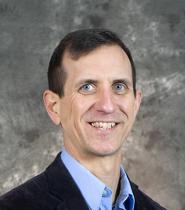
About
Prior to coming to Viterbo, Bersagel Braley completed a B.A. in Africana Studies and English at Luther College, a master’s degree in religion and theology from United Theological Seminary of the Twin Cities, and a Ph.D. in Religion (Ethics and Society) and a Certificate in Human Rights from Emory University. His earlier research focused on the intersection of theology, religion and global health in the primary health care movement and the response to the global AIDS pandemic.
He is active locally in public health conversations as part of the Health Sciences Consortium Population Health Committee and as a member of the annual health summit planning team as well as the Bioethics Network of the Upper Midwest (BENUM). He continues to learn from colleagues around world as a fellow with the Leading Causes of Life Initiative, an international collaboration of scholars and practitioners committed to organizing our institutions and communities around that which promotes human flourishing.
In addition to his work in health, he served as executive director of Southern Truth and Reconciliation, a university-community partnership highlighting reconciliation practices of communities confronting legacies of racial violence. His commitment to racial and social justice continues to inform his classroom teaching as well as community engagement through the Creating a Healthier Multicultural Community initiative. From 2010-2017, he served as a faculty member and administrator for Viterbo’s Master of Arts in Servant Leadership program.
In undergraduate and graduate seminars as well as his role as director of the Honors Program, he invites students to reflect on what is theirs to do in responding to the pressing social issues of our time – from global health and interreligious conflict to economic inequality and political polarization. In mission seminars focused on revitalizing neighborhoods here in the Coulee Region and in study abroad courses that emphasize solidarity with our global neighbors in Africa and the Caribbean, he is passionate about getting students out of the classroom and into the community to serve and learn with persons and populations whose voices are too easily and too often ignored.
Title: Making Meaning as CNAs during COVID
Timeframe: 2022 - 2023
Research Team:
- Matthew Bersagel Braley, Ph.D. (Ethics, Culture, and Society)
- Tyler Flockhart, Ph.D. (Sociology)
- Silvana Richardson, Ph.D., RN, AHN-C (Nursing)
- Megan Messa, (Nursing Student)
- Jerica Mueller, (Biology Student)
- Lexi Oestreich, (Psychology Student)
- Raghad al-Khaz-Raji, (MA in Servant Leadership Student)
Project Summary:
We are seeking to understand the place of religio-spiritual beliefs, concepts, and practices in college-age CNAs working in nursing care facilities during the COVID-19 pandemic. During the intense periods of facility lockdowns, college-age CNAs found themselves not only with additional physical work demands but also with shifting demands on the role they play in fulfilling pscyho-social and religio-spiritual needs of their residents. The broadening and intensification of their professional caregiving roles took place as these young adults were also navigating in their personal lives the unprecedented practical, social, and existential challenges of pandemic living. These challenges were amplified for many of these CNAs by significant disruptions to their primary social support network as campuses shifted to online learning.
As a result of these factors, their experiences may offer important insights into the form and content of this generation’s questions about meaning, purpose, faith, responsibility, vocation, and values. How do they make meaning? What concepts, beliefs, and practices do they draw on to make sense of and respond to this moment? How do their frameworks of meaning shape their encounters with vulnerable residents at the end of life who may have been formed by different frameworks of meaning?
The project has its origins in hearing the stories of CNAs in my ethics and medicine courses. We hope that this research might lead to additional support of CNAs for the critical, often unacknowledged, roles they play in providing holistic care. The research is supported by two generous grants from the Louisville Institute and the Interfaith Youth Core.
- Wabash Center Blog Series on Teaching, https://www.wabashcenter.wabash.edu/author/matthew-braley
- "Health Care from the Outside In and the Inside Out: The Transformative Potential of a Franciscan Nursing Education," paper with Julie Meyers, MSN, Association of Franciscan Colleges and Universities, June 2018
- "Traditional and Psychological Factors Associated with Academic Success: Investigating Best Predictors of College Retention,” with David Saunders-Scott and Naomi Stennes-Spidahl, Motivation and Emotion, December 2017 (online)
- "Recovering Our Senses of the Divine: Piety and Practice among the Modern Priesthood of All Healers," paper, Global Health Catalyst Summit, Harvard Medical School, April 2017
- “Recovering Religion: Practicing Intersectoral Cooperation in a Time of Cholera,” Development in Practice, Vol. 27, Issue 5 (2017)
- “Global Health after Pentecost: Toward Theological Reflection as a Religious Health Asset, “Christian Journal for Global Health,” Vol. 1, Issue 2 (Fall 2014)
- “The Christian Medical Commission and the World Health Organization,” in Religion as a Social Determinant of Health (Oxford: Oxford University Press, 2014).
- “Checking Vitals: The Theological (Im)Pulse of Christian Leadership in Global Health.” Practical Matters 4 (2011), http://www.practicalmattersjournal.org
- Rooting, Reforming, Restoring: A Framework for Justice in Rwanda, “Online Journal of Lutheran Ethics” (March 2004), http://www.elca.org/JLE
